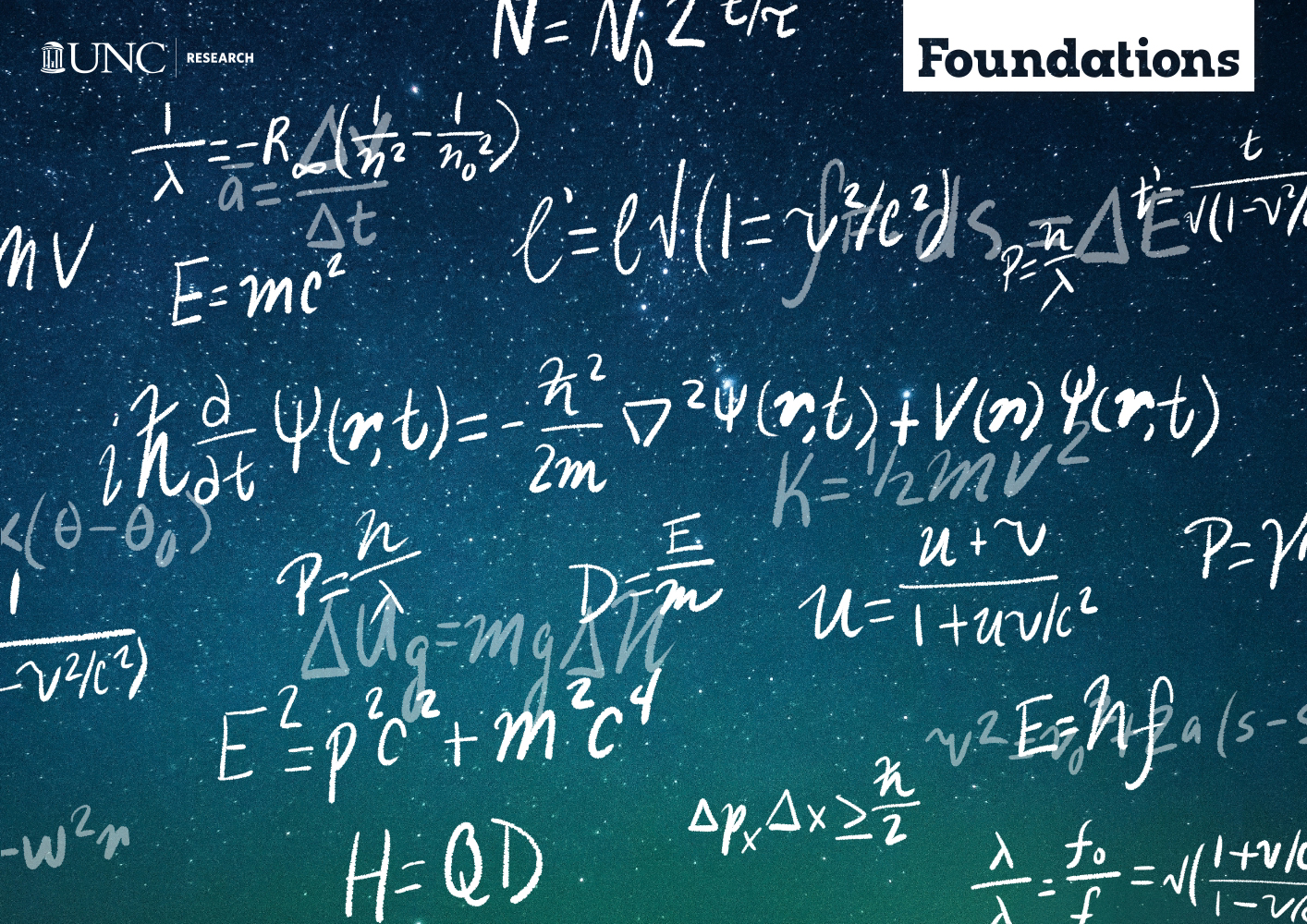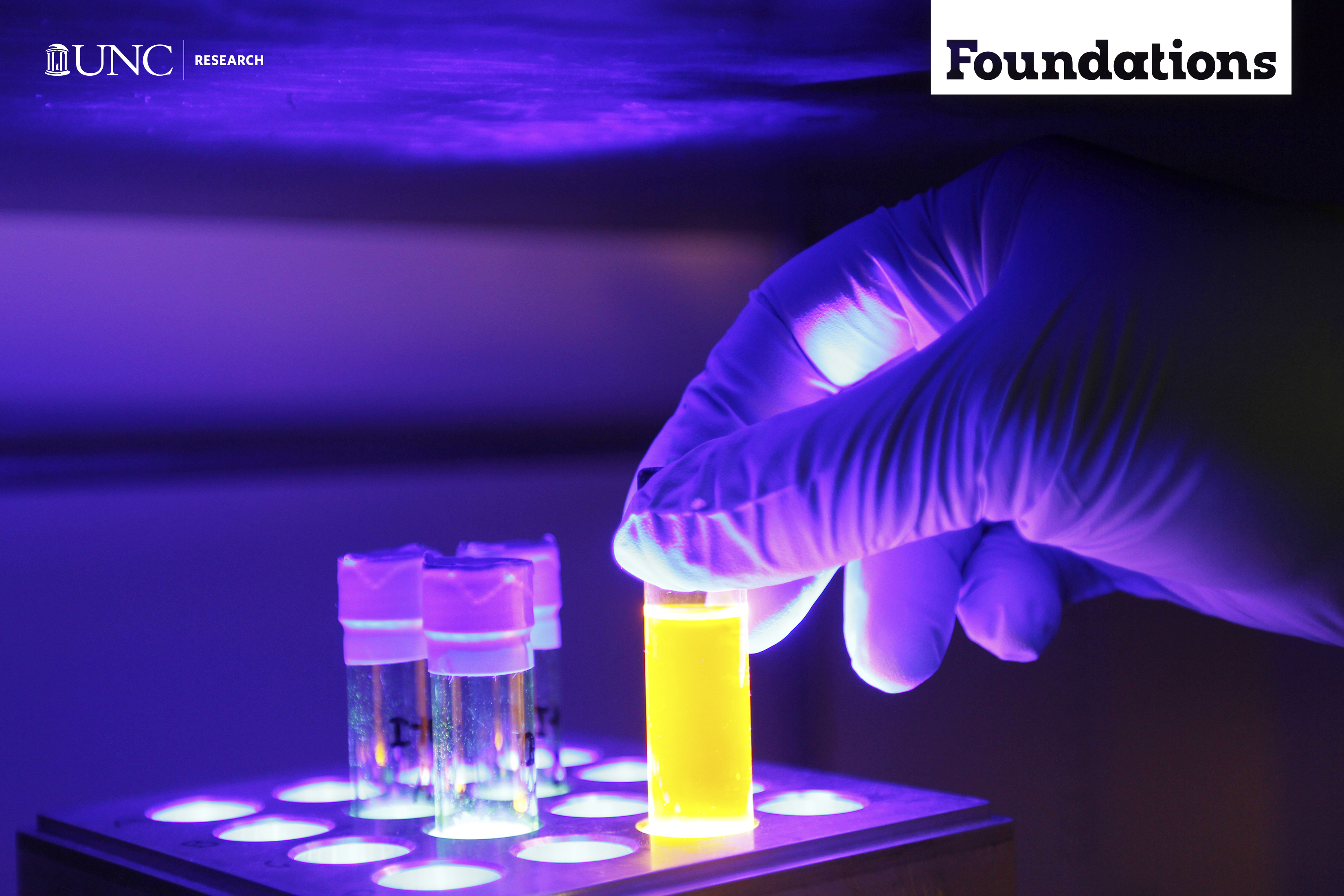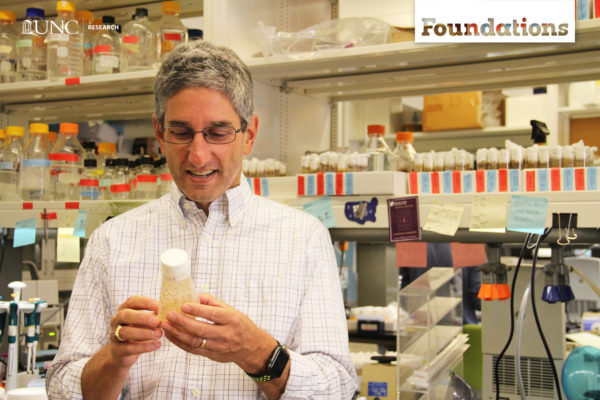
From the inner workings of the universe to the biological system of a fruit fly, these stories uncover the revolutionary nature of basic science and its potential to shape our world.
Speaking Math
Imagine spending an entire lifetime reading one sentence — that’s the kind of problem Joaquín Drut faces every day. The UNC physicist works with numbers too large to compute in an effort to better understand the way our universe works.
Generating Power Like Plants
When plants absorb sunlight, they convert carbon dioxide into energy-rich organic compounds. What if humans could do the same thing? What if we could pull CO2 out of the air and use it to build organic molecules? This revolutionary idea is still just that — an idea. But organic chemists at UNC are laying the groundwork for turning it into reality.
Why a Fly?
The genome of a fruit fly is strikingly similar to that of a human — so much so that scientists have been studying these tiny insects for over 100 years, in search of treatments for diseases like spinal muscular atrophy and neurological disorders. UNC geneticist Bob Duronio is one of those scientists.




